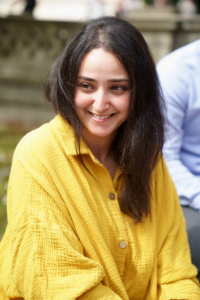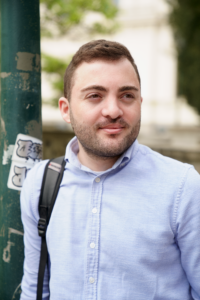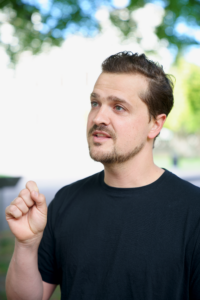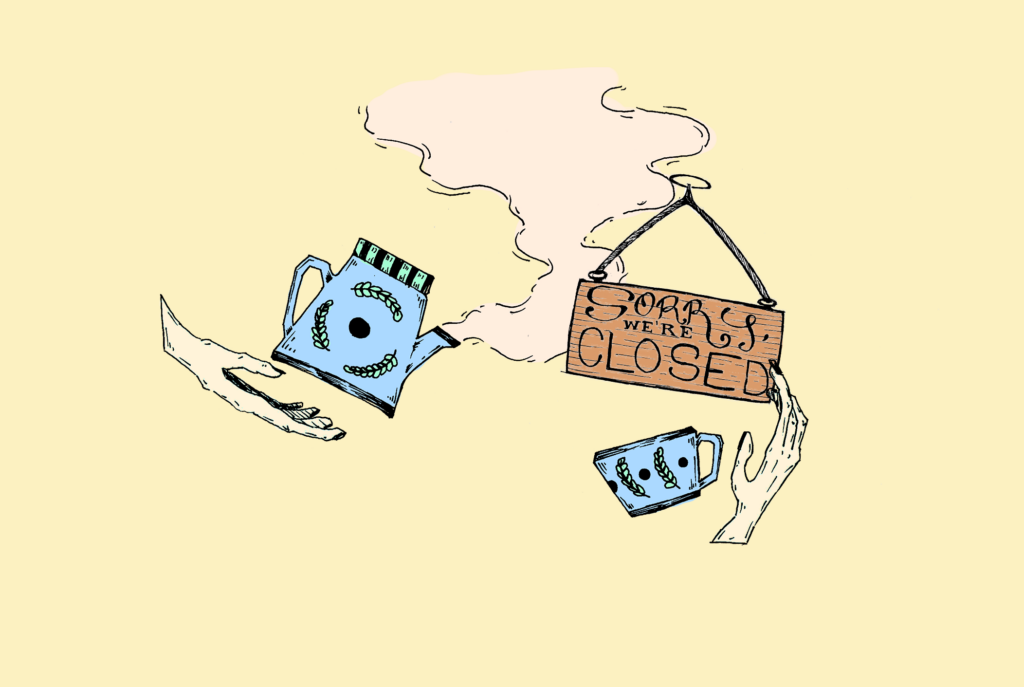Lund is a town with students from all over the planet. Lundagård’s Alexandra Bradley interviewed five students studying in Sweden, who hail from different corners of the world, to see what their biggest culture shocks have been so far.
Yasmine Maghnouj

Country of Origin: Morocco
Studying: Master’s in Architecture
“The biggest culture shock for me has been the difference in daily rhythm and social routines. Coming from Morocco, where streets are bustling late into the night and dinners are held much later, Lund is much quieter and almost feels a bit lonely, especially in the area I live. I mean, cafés and bakeries close at 18.00 and most restaurants at 21.00 here, which is just inconceivable for me. As we’re approaching summer and it’s become brighter outside, the atmosphere here in Lund has changed, with more people enjoying the outdoors and socializing in public spaces, sunbathing, and finally, I am starting to feel a bit more life in the town.”
Tedo Sanikidze
Country of Origin: Georgia
Studying: Bachelor’s in Business Administration and Master’s in Management

“It is difficult to pinpoint just one experience as the biggest culture shock, but if I was to name one, it would be the nature of Swedish people. In the beginning of my studies, Swedish people seemed rather reserved and timid, especially as I hail from Georgia, where people are typically more emotionally expressive. Being from a more southern region of the world, I sometimes find it difficult when people are reluctant to communicate and share their emotions openly. However, this initial difference progressively diminished as I formed stronger ties with folks here and I guess that is a natural progression in any friendship.”
“But to be completely honest, I still get the impression that I should keep a certain amount of space, whether it’s because of my past experiences or a slight cultural gap that still exists. It serves as a reminder of the contrasts that exist between my Georgian background and my current life in Sweden.”
Manuel Botero
Country of Origin: Colombia
Studying: Master’s in Innovation and Entrepreneurship

“The biggest culture shock for me as a Latin American studying in Sweden is witnessing how correct, woke and respectful people are. I am from Colombia and am used to people being much less diplomatic and more opportunistic in the sense that we are always on the lookout for opportunities to advance ourselves and make the most out of every situation, even at the expense of others. We question everything. It almost feels like Swedes are somewhat naive but then again, with more thought, one could say it is us who are naïve and ill minded.”
“Either way as a South American, I feel at times that I am doing something wrong in these countries that are so polite, correct, respectful.”
Natalia Olender
Country of Origin: Iceland
Studying: Master’s in Management

“Coming from Iceland, where we primarily speak Icelandic, one of the first things I noticed upon studying in Lund was how proficient Swedish people are in English. It initially made me nervous about communicating in English at all but I allowed myself to make mistakes, learn from them and seek help from my new friends who were more proficient than me. I think for anyone worried about not speaking English, do not worry as most people want to help you. It’s been almost a year studying in Lund and I already feel I have improved my English so much.”
“Another big cultural shock is that everyone in Lund walks and bikes. In Iceland, driving is the primary mode of transportation, and so the shift to biking everywhere means I engage in daily exercise without even realizing it. This really improved my quality of life and I have a greater sense of energy throughout the day.”
Paula Wittenburg
Country of Origin: Germany
Studying: Master’s in Management

“I have been surprised by Swedish culture and the Swedes’ slower pace of life. There is a strong emphasis on maintaining a healthy work-life balance, with rules in place to ensure regular breaks. At first, I found it a bit strange when my lecturers and teachers sent us out for small ’fika’ breaks every hour or so, but I quickly realized the benefits, allowing me to recharge and concentrate better on my studies.”
“And I love the concept of ’fika’. It has been one of my favourite aspects of Swedish culture. For anyone that does not know fika, it means taking time out of your day to enjoy a coffee or snack with friends. It is not as common in Germany, but it made me appreciate the importance of slowing down and connecting with others on a deeper level.”









